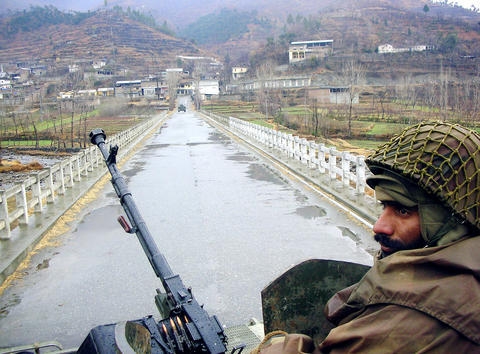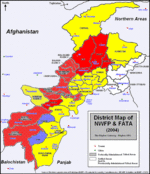Key observations

Key observations
Pakistan deploys troops from tribal areas to the Indian border
By Bill Roggio
 At least one division of Pakistani troops has been redeployed from the Bajaur-Dir region to the border near Lahore in eastern Pakistan.
At least one division of Pakistani troops has been redeployed from the Bajaur-Dir region to the border near Lahore in eastern Pakistan.Pakistani military continues to withdraw from the tribal areas
By Bill Roggio
 More troops are being pulled from Bajaur, Mohmand, and the North and South Waziristan tribal agencies. Another division is thought to be leaving the northwest.
More troops are being pulled from Bajaur, Mohmand, and the North and South Waziristan tribal agencies. Another division is thought to be leaving the northwest.Taliban consolidate control in Arakzai tribal agency
By Bill Roggio
 Sharia declared in upper and lower Arakzai; 16 of 21 tribes bow to Taliban law. Taliban welcome Pakistani Army withdrawal in the northwest, negotiations with the government are underway.
Sharia declared in upper and lower Arakzai; 16 of 21 tribes bow to Taliban law. Taliban welcome Pakistani Army withdrawal in the northwest, negotiations with the government are underway.Pakistan shuts down NATO supply line through the Khyber Pass
By Bill Roggio
Both Paki and India.
What is Iran up to:
FM spokesman in Tehran: Iran begins preparing operations against Israel
DEBKAfile Special Report
December 29, 2008, 9:01 PM (GMT+02:00)
On Monday, Dec. 29, Day 3 of Israel's Gaza operation, the spokesman said Iran had embarked on preparations for operations against Israel in line with the directives laid down by supreme ruler Ayatollah Ali Khameini in his speech Sunday.
In his speech, Khameini issued a fatwa calling on Muslims to stand up and defend Palestinians against Israel.
More...
Iran activating its proxies
By Olivier Guitta
Iran is smartly playing its cards, using its main Sunni and Shiite proxy to create havoc in the region and de facto making it stronger. At this point, Iran’s next step is uncertain. But it is quite possible that Hezbollah will decide to open a second front against Israel. Also the destabilization operations against the Sunni regimes in the region hostile to the Islamic Republic are likely to continue unabated. At this point when it comes to terror, all roads lead to Tehran.
I wrote an article for the Middle East Times analyzing the current situation.
You can read it in full here.
Here is an excerpt:
After the six-month truce with Israel expired on Dec. 19, Hamas decided, or perhaps was urged, to resume its attacks on Israel. Thus Hamas went on a rampage campaign, firing rockets at Israel to create terror and death among Israeli civilians.
As could be expected, Israel reacted the way most countries would when attacked, and to protect its population against a group it considers to be a terrorist organization.
A new war in the region is likely to benefit only one country: Iran.
Indeed, following the model of the summer 2006 war against Israel triggered by the capture of two Israeli soldiers by the Lebanese Shiite organization, Hezbollah, Iran would benefit with a new front opening up.
This time Iran is turning to using its Sunni arm, Hamas. Contrary to what a number of experts in the region profess, Sunni extremists and Shiite extremists have no problem joining forces against a common enemy and putting aside their age-old rivalries.
While Sheikh Ahmed Yassin, the founder of the Palestinian Resistance Movement, also known as Hamas, was still alive, he refused to Iran's advances time and again. Yassin was adamant not to engage the Shiites. After his death, Hamas became much more open to Tehran's advances. Recently, Iran has become Hamas' main bankroller and as such wants to have a say in what Hamas should or should not do.
Labels: india, Key observations, Military of Pakistan
![Reblog this post [with Zemanta]](http://img.zemanta.com/reblog_e.png?x-id=12b774b6-c36a-4fd2-b8d5-24fb9d7b9c12)


0 Comments:
Post a Comment
Subscribe to Post Comments [Atom]
<< Home